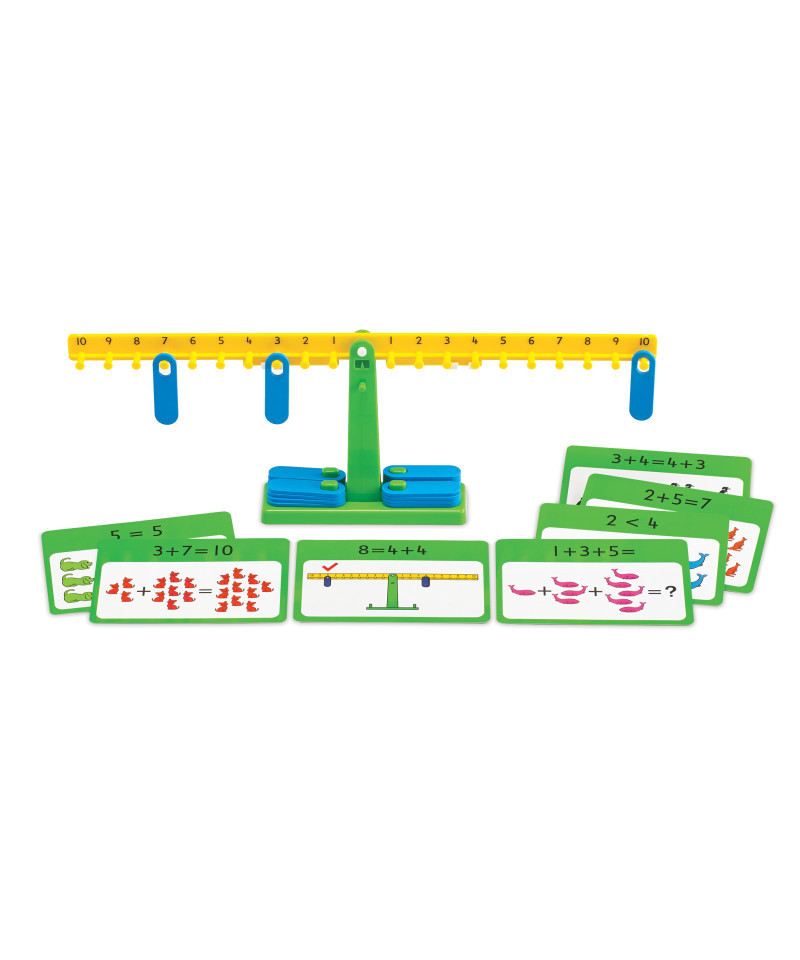The Number Balance Activity Set is an excellent hands-on equivalence tool to show children number relationships and number operations. Self-checking math balance makes learning number concepts easier because kids can see the results. Place weights on a number or combination of numbers on one side and find an equivalent number or combination of numbers on the other by balancing the weight. Display a variety of concepts such as greater than, less than, equal to, and basic operation skills. Number Balance may be used to teach addition, subtraction, multiplication, division, fractions, as well as gain insight to abstract number and operations concepts, algebraic equations and more. The number balance relies on the principle of equivalence. Weights are placed on either side of the fulcrum or pivot point. If a weight is placed on the peg marked 8 on the right arm of the balance then it may be 'balanced' by placing a weight on 6 and another on 2 on the left arm of the balance. The equation 8 = 6 + 2 is formed. Six may be balanced with 5 and 1, and by placing two weights on 3. This balance idea may be extended into early algebra! Set includes 10 double-sided colorful activity cards. As kids become familiar with basic number concepts, the number balance may be used to learn about addition and particularly about the commutative property of addition, that is 6 = 4 + 2 and 2 + 4 = 6. Links to equations such as 2 + 2 + 1 + 1 = 4 + 2 may be made. The ideas of greater than and less than may be explained using a number balance. Subtraction, multiplication and division may all be explained using a number balance. Later early algebra concepts may be introduced. Balance measures 14" long and 5" high. Includes 1 plastic number balance, 20 hanging weights, and 20 double-sided activity cards.
- Display a variety of concepts such as greater than, less than, equal to, and basic operation skills. Number Balance may be used to teach addition, subtraction, multiplication, division, fractions, as well as gain insight to abstract number and operations.
- The number balance relies on the principle of equivalence. Weights are placed on either side of the fulcrum or pivot point.
- As kids become familiar with basic number concepts, the number balance may be used to learn about addition and particularly about the commutative property of addition.
- Number Balance may be used to teach addition, subtraction, multiplication, division, fractions, as well as gain insight to abstract number and operations concepts, algebraic equations and more.


